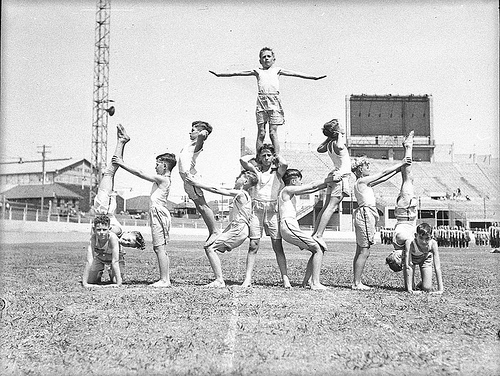 The LGcomms Academy is the premier event for local government comms folk. This thoughtful post aims to help to make it even better in 2014, and beyond.
The LGcomms Academy is the premier event for local government comms folk. This thoughtful post aims to help to make it even better in 2014, and beyond.
It's very bad manners to criticise people who invite you to their party, so I wish I'd been able to say some of this during the event, at the unconference group seeking feedback on the event, but I had to head for Hull, so I'll preface what I'm about to say with words of sincerely meant praise.
The LGComms conference (or "Academy") is a stunning chance to network, a genuine opportunity to learn and a star-studded parade of some of the great talents, important influencers, key thinkers and gifted speakers in public sector communications and beyond. And most of them gave us a real kick, a real sense of value and challenge.
I haven't been before, so I don't know if attendance this year equals levels of previous years, but I suspect numbers are down and I wonder if that might be as much about presentation and style as it is about (the apparently preferred belief) resources and time.
I'm also aware that - middle-aged white bloke that I am - I'm part of the problem I'm about to describe and that there may be people who feel the same way about my own contribution or presence on the platform.
I don't mean to be ungrateful. This is meant as friendly criticism; an attempt to help, and I hope my view is relevant and useful. It is a view I tested while there. Many women I spoke to seemed to agree.
Among a high number of very impressive speakers one - Doug Hewett of People Made - talked about brand: he said, "The brand is what the brand does". Great insight.
If that's right, what is the LGComms brand?
Well first and foremost, it's male. Overwhelmingly male. Over three days, of the people who got on stage, women made up less than a quarter. Of those who got to make a "speech" as opposed to being on a panel, 3 of
25 were women. I know LGComms actively looked for women speakers so maybe there's a need to understand any barriers to their involvement.
Thirdly, it seems to be quite shouty and not very much listen-y, appearing committed to an old-style, disciplined timetable; one speaker handing the mic to the next so the audience can be talked at; always
clear who is in charge.
Finally - and this is clearly filtered by my view of how we should behave in our profession - it seemed distinctly conservative, with a small C, making grudging allowances for new approaches, and I thought it
sometimes looks like an old-fashioned organisation struggling to come to terms with challenges of new behaviour, new technologies and new demands at a local level.
So far, so wow. Hardly a surprise.
It ends up looking like quite a lot of British institutions, especially in the 'state' space; white, male, not listening enough and conservative. The BBC are constantly "confessing" to a similar set of
concerns.
There is nothing inherently wrong with three out of four of those characteristics either, and for some brands they might be exactly what is required, but I wonder if, for LGComms, as it seeks to support and
represent cutting edge communicators across the United Kingdom, given the nature and make-up of its audiences and the work that they do, that brand might be a disadvantage.
Eddie Coates-Madden is Assistant Head of Service, Communications & Marketing at Hull City Council
